10 Juicy Facts About Apples
About that apple-a-day keeping the doctor away-is there proof? Find out in this slide-show summary of some well-known, and lesser-known, facts about apples and good health.
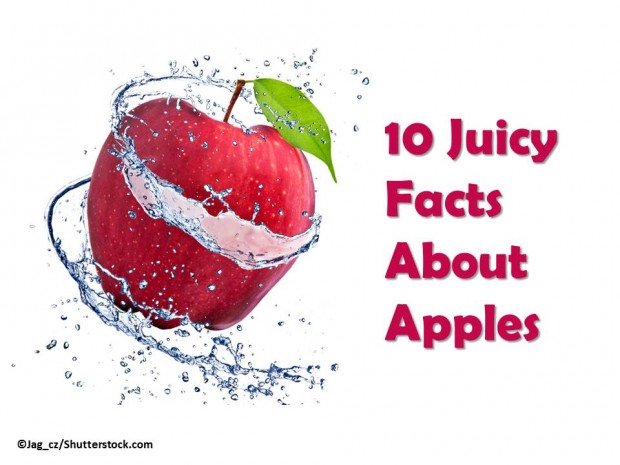
About that apple-a-day keeping the doctor away-is there proof? Find out in this slide-show summary of some well-known, and lesser-known, facts about apples and good health.
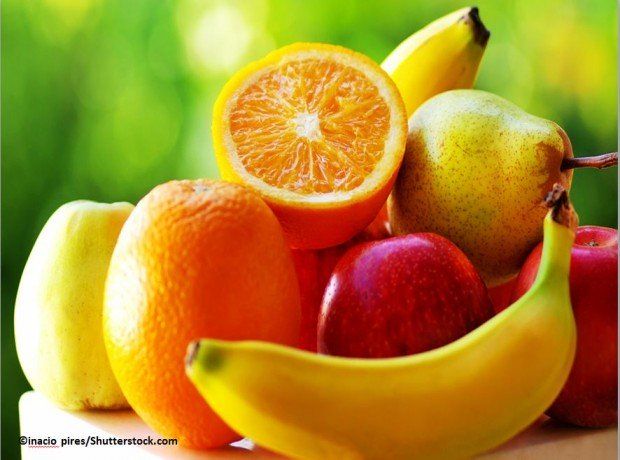
Comparing Apples & Oranges, & Bananas: Americans eat more bananas than any other fresh fruit (average, 25 lb, or 100 average-sized fruits/yr).
- Number 2: Apples-average, 16+ lb/yr.
- Other widely consumed fruits: watermelon, cantaloupe, oranges, grapes, strawberries.

Core Components: Apples contain plenty of vitamins and minerals.
- Rich in phytonutrients acting as antioxidants
- In US, apples are the largest source of phenolics consumed from fruits (22%)
- Particularly high in the flavonoid quercetin
- Apple consumption shown to reduce “LDL oxidation lag time”
- High in fiber
- No fat or salt
- Excellent source of boron
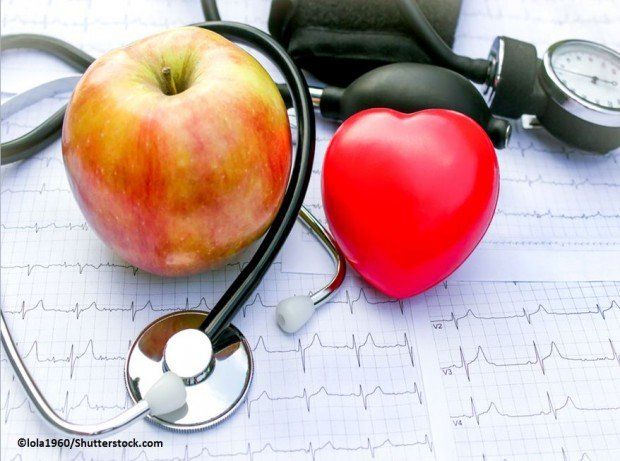
Apples, Gut Microbes, and Cardiovascular Health: Apples and their components may modulate cardiovascular disease (CVD) risk factors.
- Strongest effects are related to lipid metabolism but also impact vascular function, inflammation.
- Consumption shown to reduce total cholesterol.
- Microbiota-derived metabolites could contribute to the beneficial effects.
- Prebiotic impact of eating apples may be important mechanism of CVD risk marker reduction.
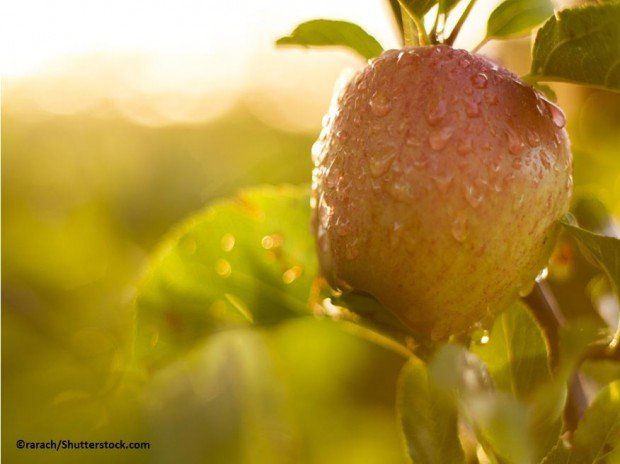
Antioxidants in Apples vs Cancer: Antioxidant power in apples ranks among the highest in fruits.
Antioxidants may protect cells from cancer-inducing oxidative damage, prevent the start of cancer growth, stop continued tumor growth, and promote cancer cell death.
Apples may suppress breast cancer tumor growth.
Eating ≥1 apples/d associated with lower risk of lung & colon cancer.
Adding 3 apples/d to women’s diets helps lower calorie intake & contributes to weight loss, very important for cancer prevention.

Study: Apples Lower Type 2 Diabetes Risk: Participants from the Nurses’ Health Study, Nurses’ Health Study II, and Health Professionals Follow-up Study.
- Greater consumption of specific whole fruits, including apples-significantly associated with a lower risk of type 2 diabetes.
- Associations with risk of type 2 diabetes differed significantly among individual fruits.
- Greater consumption of fruit juice is associated with a higher risk.

Potassium Protects Heart, Bones, and Muscles: Apples rank among the best sources of K.
- Heart: helps relax blood vessels, decrease stroke risk, reduce blood pressure.
- Bones: K-rich foods produce alkali in the body to maintain acid-base balance.
- Muscles: K needed for muscle contraction, muscle-nerve communication, and overall muscular function.
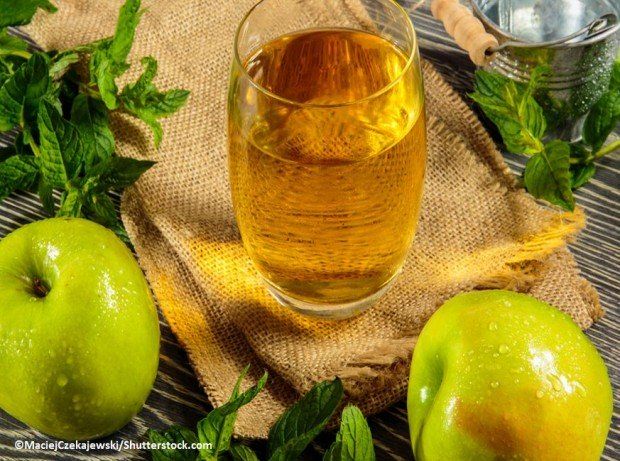
Apple Juice Ups Mood in Alzheimer: Apple juice reduces CNS oxidative damage, suppresses AD hallmarks, improves cognitive performance, organizes synaptic signaling.
- Caregivers reported ≈ 27% improvement in behavioral & psychotic symptoms associated with dementia-largest changes: anxiety, agitation, and delusion.
- Apple juice may supplement pharmacologic approaches for attenuating decline in mood that accompanies AD progression.
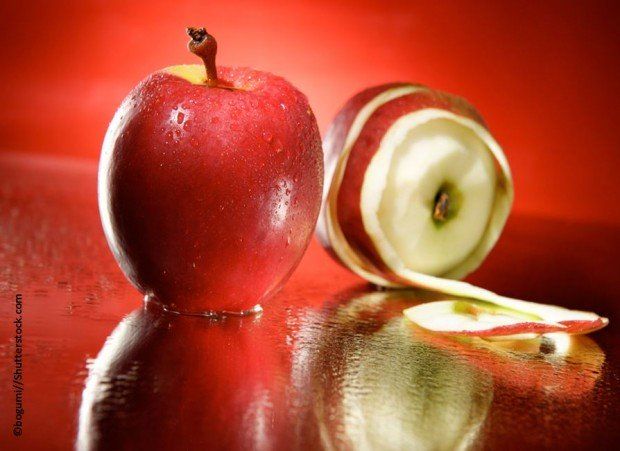
Appeal of the Peel:Please Eat! Recommendation: Fresh apples should not be peeled.
- Most of the fruit’s fiber & antioxidants are in the peel.
- Plus, studies on liver cancer found that apple peel alone inhibited Hep G2 cell proliferation significantly more than whole apples.
- At most, very low levels of pesticide residues are found on the skin.

Just Desserts: Apple vs Chocolate Bar? Study: assessed impact of a descriptive label that highlights an apple’s taste vs its health value on likelihood of the fruit’s selection vs a chocolate bar for a dessert.
- Labels: apple; healthy apple; succulent apple; healthy and succulent apple; succulent and healthy apple.
- Labels that combined health and taste descriptors significantly increased selection of apple over chocolate bar.
- Conclusion: Diet interventions that emphasize taste attributes of healthier foods lead to healthier choices than those that stress health benefits alone.
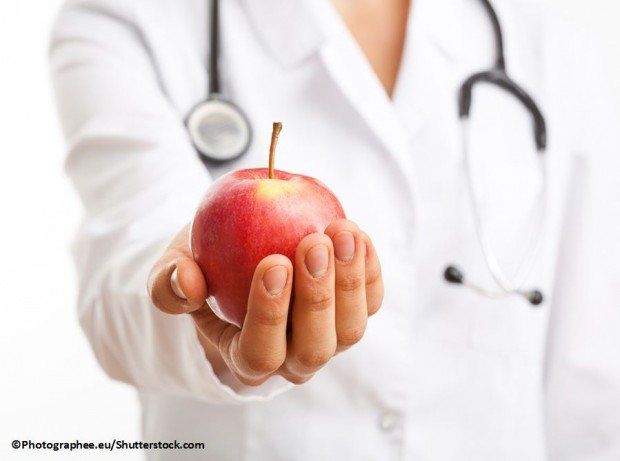
ALERT: Does Apple a Day Really Keep Doc Away? JAMA Intern Med. 2015;175:777-783.
- NHANES: 39.0% of apple eaters avoided physician visits vs 33.9% of non–apple eaters.
- But not statistically significant.
- US adults who eat an apple a day do appear to use fewer prescription medications.
Does an apple a day really keep the doctor away? A number of well-conducted studies support both well-known, and lesser-known, health benefits of the autumnal fruit, from antioxidant effects and cancer prevention to mood elevation in dementia. But one study, described later in this slideshow, reveals findings on the subject that might surprise you.
Above find brief summaries of some of the newer science behind the old adage and polish up this traditional heart-healthy Rx.
REFERENCES:

